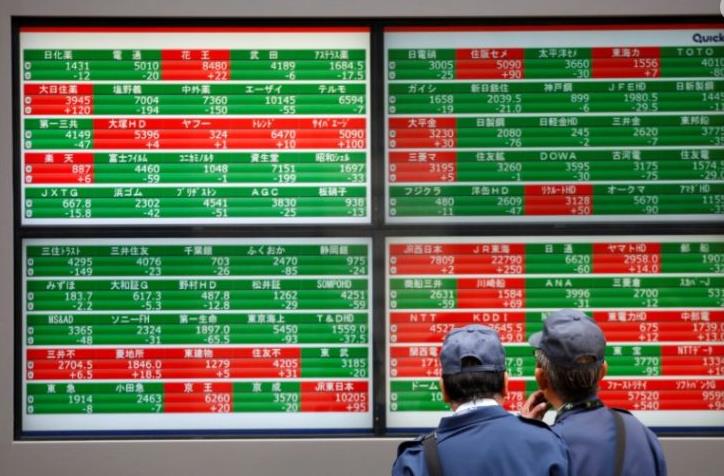Asia stocks turned lower on Monday, as oil prices slipped after a deal among major producers to boost output, while gold jumped to a six-week high amid persistent inflation worries.
Oil prices fell more than 1% on Monday, after the Organization of the Petroleum Exporting Countries (OPEC) and its allies, known as OPEC+, agreed on Sunday to increase production by 400,000 barrels per day (bpd) each month from August until phasing out the current supply cuts of 5.8 million bpd.
The deal, which will run until the end of 2022, aims to balance the global oil market and support the recovery of demand from the COVID-19 pandemic. However, some analysts said the increase was not enough to meet the expected growth in demand, and that the market could tighten further in the coming months.

“The OPEC+ deal has not changed the bullish outlook for oil prices, as the increase in supply is still below the expected increase in demand,” said Edward Moya, senior market analyst at OANDA.
Brent crude futures, the global benchmark, dropped 1.2% to $72.66 a barrel, while U.S. West Texas Intermediate (WTI) crude futures fell 1.3% to $70.77 a barrel.
Gold shines as inflation concerns persist
Gold prices rose to their highest level since June 16, as investors sought a hedge against inflation and a safe-haven asset amid rising COVID-19 cases and geopolitical tensions.
Spot gold was up 0.6% at $1,818.36 per ounce, while U.S. gold futures gained 0.7% to $1,819.50 per ounce.
Gold has been supported by the dovish stance of the U.S. Federal Reserve, which has reiterated that the current spike in inflation is transitory and that it will maintain its ultra-loose monetary policy until the economy recovers fully.
However, some market participants remain skeptical about the Fed’s view, and expect inflation to remain elevated for longer, eroding the value of the dollar and boosting the appeal of gold.
“Inflation fears are not going away, and that is keeping gold supported,” said Michael Hewson, chief market analyst at CMC Markets.
Asian stocks retreat from record highs
Asian stocks fell on Monday, as the decline in oil prices weighed on energy shares, while investors also turned cautious ahead of a busy week of corporate earnings and central bank meetings.
MSCI’s broadest index of Asia-Pacific shares outside Japan dropped 0.7%, retreating from a record high reached on Friday. Japan’s Nikkei 225 index slid 1.3%, while China’s Shanghai Composite index edged down 0.1%.
Among the major losers, Australia’s S&P/ASX 200 index fell 0.9%, as energy stocks dragged the market lower. Woodside Petroleum, Santos and Oil Search all lost more than 2%.
Hong Kong’s Hang Seng index shed 1.8%, as tech giant Tencent Holdings slumped 4.4% after China’s antitrust regulator ordered it to end its exclusive music licensing deals with global record labels.
South Korea’s Kospi index slipped 0.9%, as Samsung Electronics and SK Hynix, the world’s top two memory chip makers, fell 1.4% and 2.1%, respectively, ahead of their quarterly earnings reports this week.
